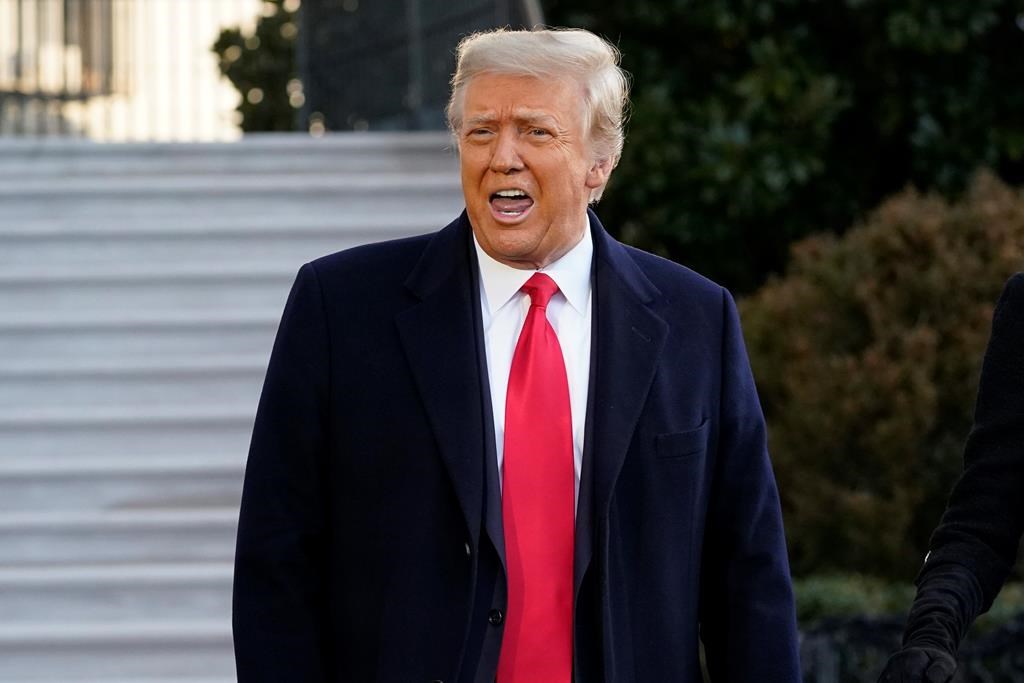WASHINGTON — House Democrats delivered the impeachment case against Donald Trump to the Senate late Monday for the start of his historic trial, but Republican senators were easing off their criticism of the former president and shunning calls to convict him over the deadly siege at the U.S. Capitol.
It’s an early sign of Trump’s enduring sway over the party.
The nine House prosecutors carried the sole impeachment charge of “incitement of insurrection” across the Capitol, making a solemn and ceremonial march to the Senate along the same halls the rioters ransacked just weeks ago. But Republican denunciations of Trump have cooled since the Jan. 6 riot. Instead Republicans are presenting a tangle of legal arguments against the legitimacy of the trial and questioning whether Trump’s repeated demands to overturn Joe Biden’s election really amounted to incitement.
What seemed for some Democrats like an open-and-shut case that played out for the world on live television, as Trump encouraged a rally mob to “fight like hell” for his presidency, is running into a Republican Party that feels very differently. Not only are there legal concerns, but senators are wary of crossing the former president and his legions of followers — who are their voters. Security remains tight at the Capitol.
Sen. John Cornyn, R-Texas, asked if Congress starts holding impeachment trials of former officials, what’s next: “Could we go back and try President Obama?”
Besides, he suggested, Trump has already been held to account. “One way in our system you get punished is losing an election.”
Arguments in the Senate trial will begin the week of Feb. 8, and the case against Trump, the first former president to face impeachment trial, will test a political party still sorting itself out for the post-Trump era. Republican senators are balancing the demands of deep-pocketed donors who are distancing themselves from Trump and voters who demand loyalty to him. One Republican, Sen. Rob Portman of Ohio, announced Monday he would not seek reelection in 2022, citing the polarized political atmosphere.
For Democrats the tone, tenor and length of the upcoming trial, so early in Biden’s presidency, poses its own challenge, forcing them to strike a balance between their vow to hold Trump accountable and their eagerness to deliver on the new administration’s priorities following their sweep of control of the House, Senate and White House.
Biden himself told CNN late Monday that the impeachment trial “has to happen.” While acknowledging the effect it could have on his agenda, he said there would be “a worse effect if it didn’t happen.”
Biden said he didn’t think enough Republican senators would vote for impeachment to convict, though he also said the outcome might well have been different if Trump had six months left in his term.
In a Monday evening scene reminiscent of just a year ago — Trump is now the first president twice impeached — the lead prosecutor from the House, this time Rep. Jamie Raskin of Maryland, stood before the Senate to read the House resolution charging “high crimes and misdemeanours.”
Earlier, Senate Majority Leader Chuck Schumer said failing to conduct the trial would amount to a “get-out-jail-free card” for others accused of wrongdoing on their way out the door.
Republicans appear more eager to argue over trial process than the substance of the case, he said, perhaps to avoid casting judgment on Trump’s “role in fomenting the despicable attack” on the Capitol.
Schumer said there’s only one question “senators of both parties will have to answer before God and their own conscience: Is former President Trump guilty of inciting an insurrection against the United States?”
On Monday, it was learned that Chief Justice John Roberts is not expected to preside at the trial, as he did during Trump’s first impeachment, potentially affecting the gravitas of the proceedings. The shift is said to be in keeping with protocol because Trump is no longer in office.
Instead, Sen. Patrick Leahy, D- Vt., who serves in the largely ceremonial role of Senate president pro tempore, is set to preside.
Leaders in both parties agreed to a short delay in the proceedings that serves their political and practical interests, even as National Guard troops remain at the Capitol amid security threats on lawmakers ahead of the trial.
The start date gives Trump’s new legal team time to prepare its case, while also providing more than a month’s distance from the passions of the bloody riot. For the Democratic-led Senate, the intervening weeks provide prime time to confirm some of Biden’s key Cabinet nominees.
Sen. Chris Coons, D-Del., questioned how his colleagues who were in the Capitol that day could see the insurrection as anything other than a “stunning violation” of the nation’s history of peaceful transfers of power.
“It is a critical moment in American history,” Coons said Sunday in an interview.
An early vote to dismiss the trial probably would not succeed, given that Democrats now control the Senate. The House approved the charge against Trump on Jan. 13, with 10 Republicans joining the Democrats.
Still, the mounting Republican opposition to the proceedings indicates that many GOP senators will eventually vote to acquit Trump. Democrats would need the support of 17 Republicans — a high bar — to convict him.
One by one, Republican senators are explaining their objections to the unprecedented trial and scoffing at the idea of trying to convict Trump now that he’s no longer in office.
Rand Paul of Kentucky said that without the chief justice presiding the proceedings are a “sham.” Joni Ernst of Iowa said that while Trump “exhibited poor leadership,” it’s those who assaulted the Capitol who “bear the responsibility.” New Sen. Tommy Tuberville of Alabama said Trump is one of the reasons he is in the Senate, so “I’m proud to do everything I can for him.”
Sen. Tom Cotton, R-Ark., is among those who say the Senate does not have the constitutional authority to convict a former president.
Democrats reject that argument, pointing to an 1876 impeachment of a secretary of war who had already resigned and to opinions by many legal scholars. Democrats also say that a reckoning of the first invasion of the Capitol since the War of 1812, perpetrated by rioters egged on by a president as Electoral College votes were being tallied, is necessary.
A few GOP senators have agreed with Democrats, though not close to the number that will be needed to convict Trump.
Mitt Romney of Utah said he believes “what is being alleged and what we saw, which is incitement to insurrection, is an impeachable offence. … If not, what is?” Romney was the only Republican senator to vote for conviction when the Senate acquitted Trump in his first impeachment trial.
___
Associated Press writer Hope Yen contributed to this report.
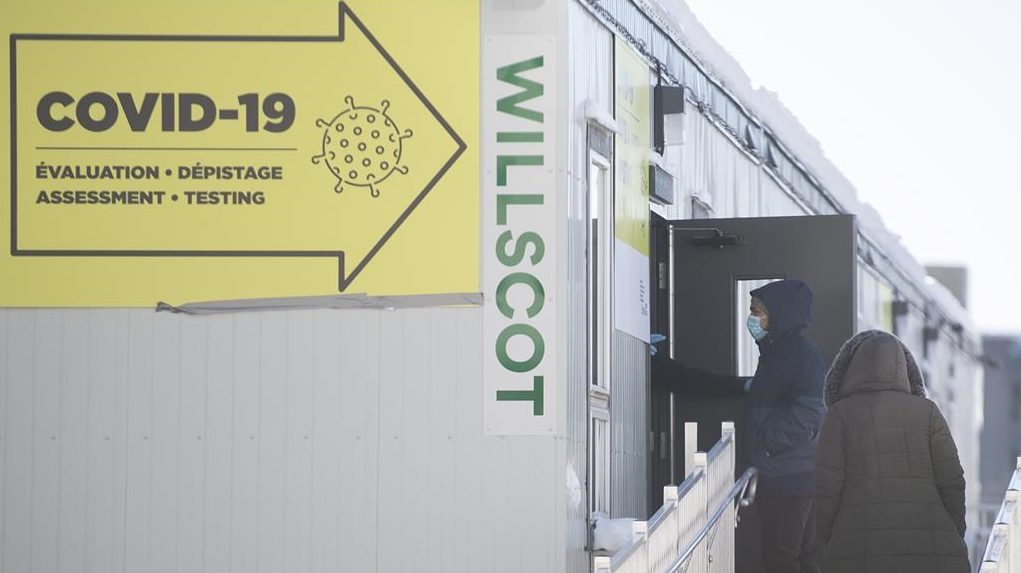
It’s still too soon to know whether the recent downward trend in new COVID-19 cases will continue, Canada’s chief public health officer said Sunday as several provinces grappled with outbreaks that threatened to derail their fragile progress.
Dr. Theresa Tam said there’s been an improvement in the COVID-19 numbers in British Columbia, Alberta, Ontario and Quebec, but the disease is regaining steam elsewhere.
“While community-based measures may be starting to take effect in some areas, it is too soon to be sure that current measures are strong enough and broad enough to maintain a steady downward trend across the country,” she wrote in a statement.
Some long-standing virus hot spots have made headway in lowering the number of new cases in recent weeks, but are still fighting outbreaks and flare-ups as they race to vaccinate vulnerable communities.
The federal public safety minister announced Sunday that the Canadian Armed Forces will support vaccine efforts in a large swath of northern Ontario.
Bill Blair said on Twitter that armed forces personnel will support vaccine efforts in 32 communities of the Nishnawbe Aski Nation, a collection of 49 First Nations spanning about two thirds of the province.
The military has previously been asked to help with the vaccine rollout in First Nations communities in Newfoundland and Labrador and Manitoba.
In a statement, Tam said the prospect of vaccines has offered Canadians “hope that the end of the pandemic is in sight.”
But in the meantime, she stressed that all Canadians need to keep following health measures, even after they’re immunized.
She said following public health measures will also reduce the spread of new variants of COVID-19, including the ones identified in the U.K., Brazil and South Africa.

A Waterloo-area church went ahead with Sunday morning services despite current COVID-19 lockdown restrictions and a new, firm warning from the Province.
A steady stream of cars was seen arriving at Trinity Bible Chapel in Woolwich despite the fact the Attorney General obtained an order Friday from the Superior Court of Justice, compelling the church to obey the Reopening Ontario Act or possibly be held in contempt of court.
“We do not stand in contempt of the heavenly courts though,” said pastor Jacob Reaume in his opening remarks. “In fact, I believe the heavenly courts are smiling on us.”
“Sometimes it feels like we’re under siege by the entire country right now,” said Reaume, adding that they’ve received support from thousands of people across the globe.
The church service was streamed on YouTube as well.
Reaume said that he hopes more churches will come out into the open about their meetings.
“We have a message of hope when everyone else is talking despair,” he said. “The church must meet for the glory of God, and for the love of our neighbours.”
He also claimed that MPP Randy Hillier was in attendance.
Hillier, who sits as an independent in the legislature and has been a vocal critic of the Ford government’s lockdown, tweeted a photo on Sunday which appeared to be from the inside of the church.
One man who was not a member of the church, was seen holding a sign which read, “Don’t interfere with religious services.”
“There is this intent of the police to interfere with services, and Canadian rights are that police should not interfere with religious services,” he said.
Waterloo Regional Police were not present during the service, however, bylaw officers were seen around the area.
Regional Police later issued a statement on Twitter, stating that they were aware of the gathering and are working with public health and the Region of Waterloo by-law officers to “ensure appropriate action is taken.”
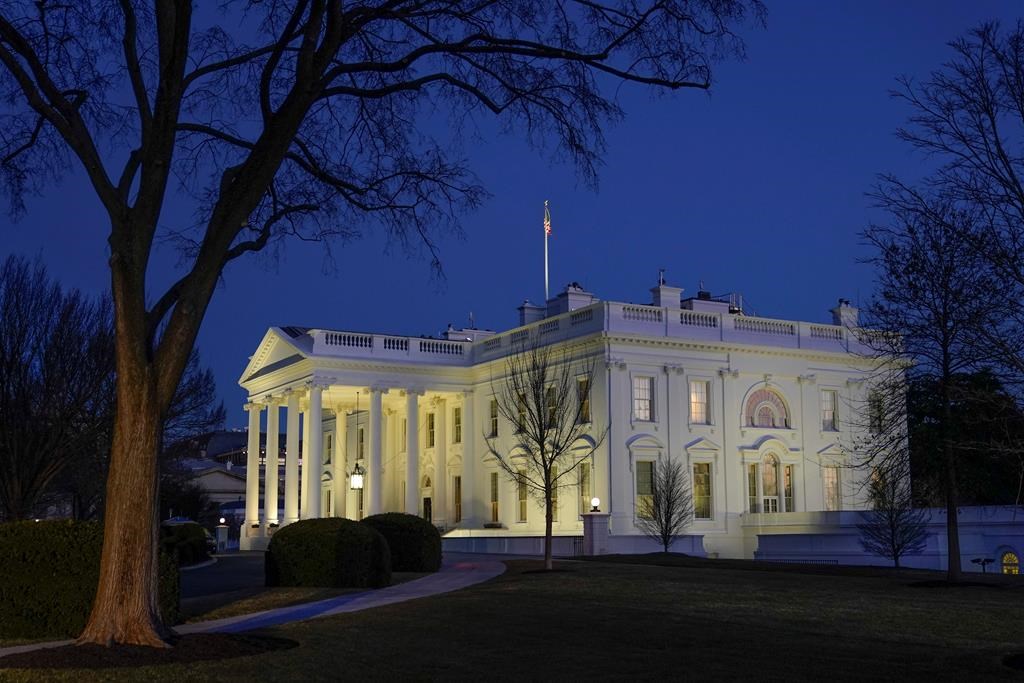
President Joe Biden is set to issue an executive order to reverse a Pentagon policy that largely bars transgender individuals from joining the military, dumping a ban ordered by President Donald Trump in a tweet during his first year in office, a person briefed on the decision tells The Associated Press.
Biden has been widely expected to overturn the Trump policy in his early days in office. The White House could announce the move as early as Monday, according to the person briefed on the decision who spoke on the condition of anonymity to discuss the order.
The move to reverse the policy has the support of Biden’s newly confirmed defence secretary, retired Army Gen. Lloyd Austin, who spoke of the need to overturn it during his Senate confirmation hearing last week.
“I support the president’s plan or plan to overturn the ban,” Austin said. “If you’re fit and you’re qualified to serve and you can maintain the standards, you should be allowed to serve.”
The decision comes as Biden plans to turn his attention to equity issues that he believes continue to shadow nearly all aspects of American life. Ahead of his inauguration, Biden’s transition team circulated a memo from Ron Klain, now the White House chief of staff, that sketched out Biden’s plan to use his first full week as president “to advance equity and support communities of colour and other underserved communities.”
The move to overturn the transgender ban is also the latest example of Biden using executive authority in his first days as president to dismantle Trump’s legacy. His early actions include orders to overturn a Trump administration ban on travellers from several predominantly Muslim countries, stop construction of the wall at the U.S.-Mexico border, and launch an initiative to advance racial equity.
Biden is also scheduled to hold a ceremonial swearing-in ceremony on Monday at the White House for Austin, who became the nation’s first Black defence secretary.
It was unclear how quickly the Pentagon can put a new policy in effect, and whether it will take some time to work out details.
Until a few years ago service members could be discharged from the military for being transgender, but that changed during the Obama administration. In 2016, Defence Secretary Ash Carter announced that transgender people already serving in the military would be allowed to serve openly. And the military set July 1, 2017, as the date when transgender individuals would be allowed to enlist.
After Trump took office, however, his administration delayed the enlistment date and called for additional study to determine if allowing transgender individuals to serve would affect military readiness or effectiveness.
A few weeks later, Trump caught military leaders by surprise, tweeting that the government wouldn’t accept or allow transgender individuals to serve “in any capacity” in the military. “Our military must be focused on decisive and overwhelming victory and cannot be burdened with the tremendous medical costs and disruption that transgender in the military would entail,” he wrote.
It took nearly two years, but after a lengthy and complicated legal battle and additional reviews, the Defence Department in April 2019 approved the new policy that fell short of an all-out ban but barred transgender troops and military recruits from transitioning to another sex and required most individuals to serve in their birth gender.
Under that policy, currently serving transgender troops and anyone who had signed an enlistment contract before the effective date could continue with plans for hormone treatments and gender transition if they had been diagnosed with gender dysphoria.
But after that date, no one with gender dysphoria who was taking hormones or has transitioned to another gender was allowed to enlist. Troops that were already serving and were diagnosed with gender dysphoria were required to serve in their birth gender and were barred from taking hormones or getting transition surgery.
Under the Trump policy, a service member can be discharged based on a diagnosis of gender dysphoria if he or she is “unable or unwilling to adhere to all applicable standards, including the standards associated with his or her biological sex, or seeks transition to another gender.” And it said troops must be formally counselled and given a chance to change their decision before the discharge is finalized.
As of 2019, an estimated 14,700 troops on active duty and in the Reserves identify as transgender, but not all seek treatment. Since July 2016, more than 1,500 service members were diagnosed with gender dysphoria; as of Feb. 1, 2019, there were 1,071 currently serving. According to the Pentagon, the department spent about $8 million on transgender care between 2016 and 2019. The military’s annual health care budget tops $50 billion.
All four service chiefs told Congress in 2018 that they had seen no discipline, morale or unit readiness problems with transgender troops serving openly in the military. But they also acknowledged that some commanders were spending a lot of time with transgender individuals who were working through medical requirements and other transition issues.
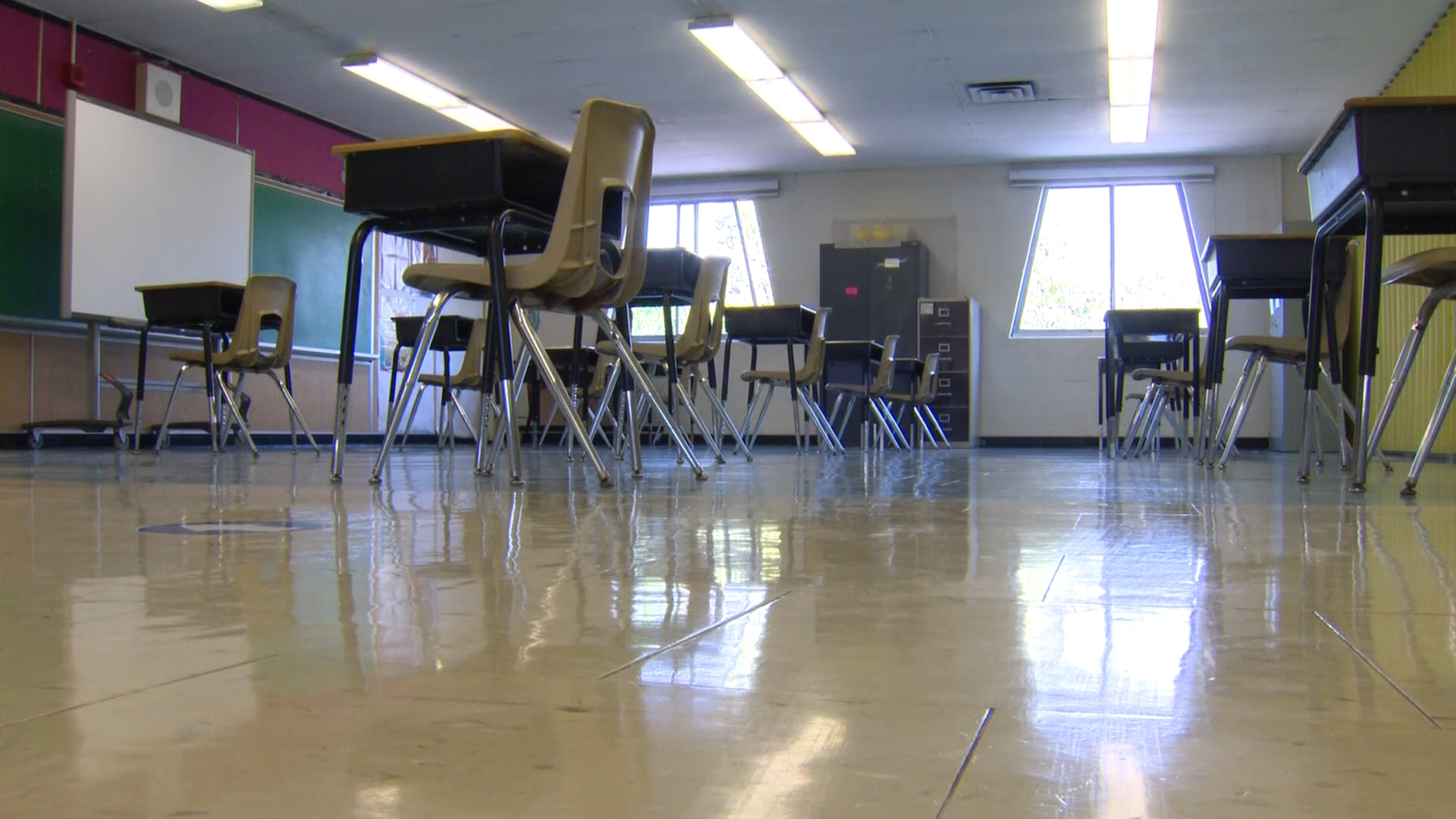
More than 100,000 students from regions outside the GTHA will be heading back into the classroom on Monday.
Education Minister Stephen Lecce announced last week that the province’s Chief Medical Officer had cleared the way for in-person learning to resume across seven public health units including Haliburton, Kawartha, Pine Ridge, and Peterborough Public Health.
In a statement released Sunday, Lecce reaffirmed that the province’s goal continues to be keeping students and staff safe. He added that “tougher layers of protection” have been introduced, such as targeted asymptomatic testing, enhanced screening, mandatory masking for students in Grades 1-3 and outdoors where physical distancing cannot be maintained.
The head of the Ontario Secondary School Teacher’s Federation is calling on the province to immediately pause in-person learning until appropriate safety measures are in place.
“The best kind of learning is in-person, face-to-face, with the support of education workers and teachers,” says Harvey Bischof. “But, as long as we don’t have a government that is going to really implement the safety measures that the medical experts are telling them they should then I think we need to hit pause for a bit.”
Bischof adds the province has rejected medical advice when it comes to smaller class sizes and better ventilation in schools.
The president of the Elementary Teachers Federation of Ontario (ETFO), Sam Hammond, has said it makes no sense to send students, teachers, and education workers back to school while the province is locked down.
On January 12, the Ford government announced that elementary and secondary students in Windsor-Essex, Peel, Toronto, York Region, and Hamilton would continue to learn remotely while it continues to closely monitor public health trends in those regions.
Elementary students and secondary students in the seven Northern Ontario public health units returned to in-person learning on January 11.

Experts at a leading children’s hospital say schools need to ramp up COVID-19 testing and masking in order to have all kids return to the classroom as soon as possible.
The guidance comes a day after Ontario said it would permit just seven public health units in southern Ontario resume in-person learning Monday, while students in hot-spot regions will continue with online learning until at least Feb. 10.
They join others in northern regions that returned to class last week, but areas including Toronto and Peel were deemed too-high risk to return to class.
The new guidelines, led by experts at Toronto’s Hospital for Sick Children, urge COVID-19 tests for all staff and students exposed to a confirmed case, while indoor masking be made mandatory for all those Grade 1 and up.
The report’s co-author Dr. Ronald Cohn says the current protocol is that testing is only required for those who display symptoms.
He also stresses the social and mental-health needs of young children, recommending kindergartners be cohorted so they can play and interact with their peers.
Cohn, president and CEO, SickKids, said schools closures should be “as time-limited as possible.”
“It is therefore imperative that bundled measures of infection prevention and control and a robust testing strategy are in place,” he said Thursday in a release.
The report also cautions against rapid tests using molecular or antigen tests because of their lower sensitivity and less effectiveness with asymptomatic cases.
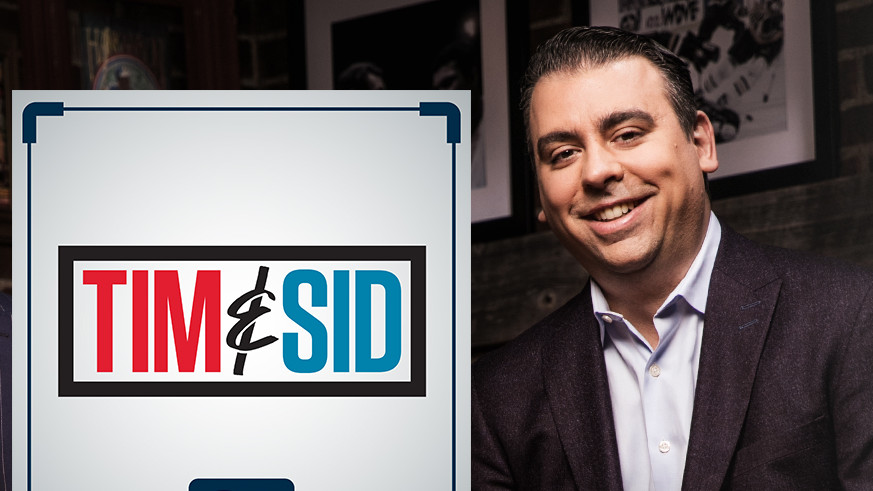
After two decades of talking sports, Sportsnet personality Sid Seixeiro is leaving the Tim & Sid show to become the new co-host of Breakfast Television on Citytv.
Seixeiro will begin waking up audiences alongside current co-host Dina Pugliese and the rest of the BT family starting March 10.
“It’s been a dream to work 20 years in the sports industry, especially alongside Tim Micallef, and express my passion and love for sports on a daily basis,” said Seixeiro, whose final co-host appearance on the Tim & Sid show will come February 26.
“I’ve always been curious to explore other areas of the business and this was a unique opportunity that I couldn’t pass up.”
Over the next few weeks, Seixeiro will be seen on both Breakfast Television and Tim & Sid ahead of his full time arrival.
“We have had a unique partnership for almost 20 years, and while I will miss his candor, encyclopedic sports knowledge and often unbridled passion, I know this is the right next step for him,” said Micallef. “While it is one door closing, it is also the opening of a new window of opportunity for myself and the show.”
Micallef will continue to anchor the 5 p.m. to 7 p.m. ET timeslot on Sportsnet television and radio alongside a rotating panel of friends of the show until further details are announced.
WATCH: Seixeiro explains his reasons for leaving the Tim & Sid show
https://toronto.citynews.ca/2021/01/21/sid-seixeiro-to-join-citytvs-breakfast-television-as-new-co-host/
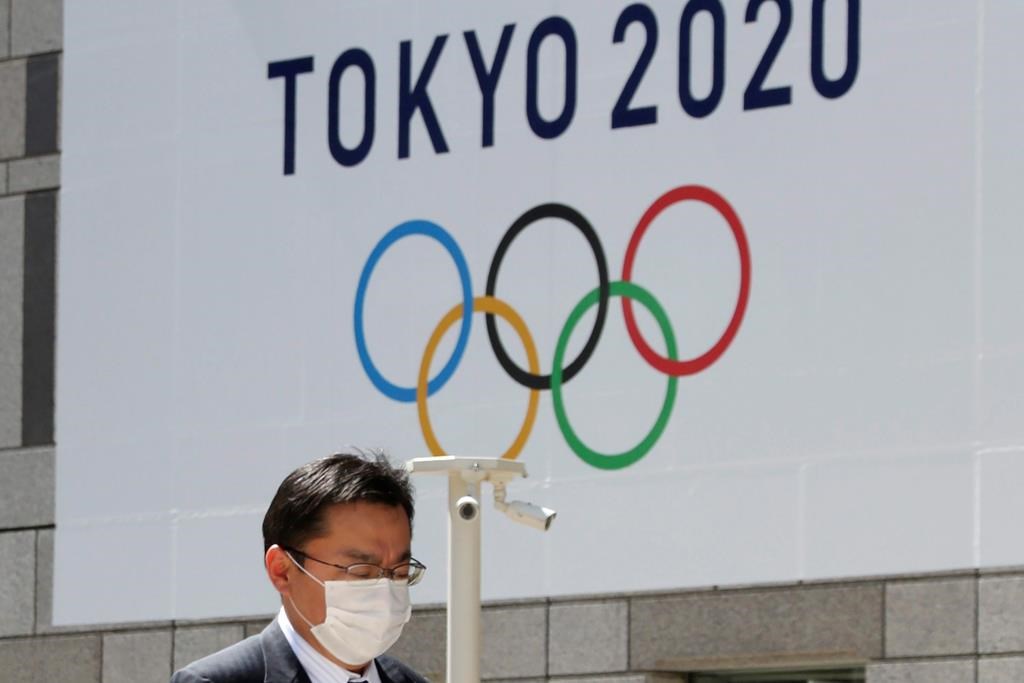
IOC President Thomas Bach and local organizers are pushing back against reports that the postponed Tokyo Olympics will be cancelled.
Now set to open July 23, the Tokyo Games were postponed 10 months ago at the outbreak of the coronavirus pandemic, and now the event appears threatened again.
The Times of London, citing unidentified government sources, reported that the games will have to be cancelled. It quoted an unidentified senior member of the ruling government coalition.
“No one wants to be the first to say so but the consensus is that it’s too difficult,” the source said. “Personally, I don’t think it’s going to happen.”
In a statement Friday, the local organizing committee did not address directly The Times story, but said the Olympics were going forward and had the support of Prime Minister Yoshihide Suga.
“All our delivery partners including the national government, the Tokyo Metropolitan Government, Tokyo 2020 Organizing Committee, the IOC and the IPC (International Paralympic Committee) are fully focused on hosting the games this summer,” the statement said.
“We hope that daily life can return to normal as soon as possible, and we will continue to make every effort to prepare for a safe and secure games.”
The Times of London said Japan hoped to land the 2032 Olympics. The IOC has already awarded the 2024 Olympics to Paris and the 2028 version to Los Angeles.
The idea of Tokyo waiting a decade seems unlikely, given the cost of maintaining venues, negotiating new leases, and so forth. Tokyo has already spent about $25 billion to organize these Olympics, most of which is public money.
Several reports of a cancellation began to surface this month when the Japanese government put Tokyo and other prefectures under a state of emergency order to counter a surge of rising COVID-19 cases.
“We have at this moment, no reason whatsoever to believe that the Olympic Games in Tokyo will not open on the 23rd of July in the Olympic stadium in Tokyo,” Bach told the Japanese news agency Kyodo on Thursday. He also said there is “no Plan B.”
Senior International Olympic Committee member Richard Pound said earlier in the week that the Olympics may be held largely without fans, making it a mostly television event.
The Switzerland-based IOC gets 73% of its income from selling broadcast rights and has seen its main revenue source stalled by the Olympic postponement. A largely TV-only event would suit the IOC better than a cancellation.
Unlike other sports businesses that offer hundreds of games, the IOC has only two main events to sell — the Summer and Winter Olympics.
Bach hinted that radical changes may be needed to pull off the Tokyo Olympics, which involve 11,000 athletes and tens of thousands of coaches, officials, judges, VIPS, media and broadcasters.
About 4,400 athletes will attend the Paralympics, which are set to open Aug. 24.
“You may not like it but sacrifices will be needed, “ Bach said. “This is why I’m saying, safety first, and no taboo in the discussion to ensure safety.”
Japan has reported fewer than 5,000 deaths from the coronavirus and has handled the virus better than most countries. But the surge is not tapering off in Tokyo, a sprawling metropolitan area of 35 million.
Public opinion in Japan has also turned against the games with 80% in several polls saying they should be postponed again or cancelled.
Bach said organizers were in a better position to hold the Olympics now than they were 10 months ago when the games were postponed.
“First of all, let me be clear that you cannot compare March 2021 with March 2020 because there is such great progress in science, medicine, vaccination and (virus) tests,” Bach told Kyodo. “All this was not available in March last year. Nobody knew yet how really to deal with the pandemic, and now we know much more.”
Japan is experiencing a slow roll out of vaccines. However, the IOC has said its measures against the virus will focus on testing, quarantines, social distancing and keeping athletes largely isolated.
It has encouraged athletes to be vaccinated but will not require it.
_
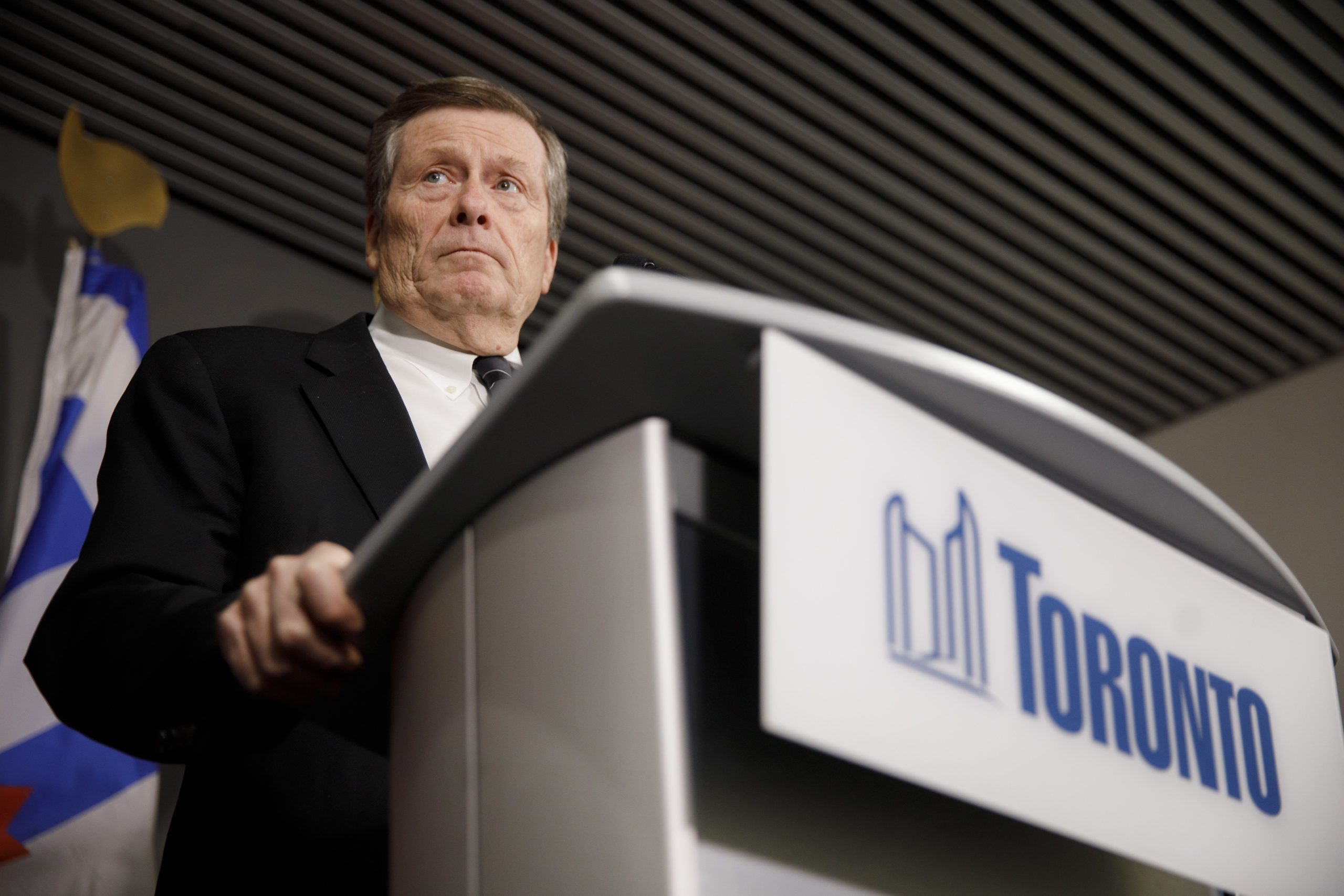
Toronto Mayor John Tory has joined a chorus of Canadian politicians in urging Pfizer-Biotech to produce more COVID-19 vaccine.
Tory followed Prime Minister Justin Trudeau and Ontario Premier Doug Ford, among others, in speaking directly to executives from the pharmaceutical multinational. Tory said he wanted to make a constructive case after the company said it would not be able to fulfil next week’s order to the federal government.
“The best way to go about these kinds of conversations is to make your case as a Canadian, which I did, and as the mayor of the largest city in the country, and to try to make Canada’s case,” Tory said.
Tory said he knows members of Pfizer’s management team from his previous career as a business executive, and that he reached out to them in concert with the federal government.
“I’m trying to help the country’s efforts to try to see if we can’t get more supply,” the mayor said. “I can’t tell you what results my intervention, or anybody else’s, will have.”
Toronto has had to shut down its two vaccination programs until the federal government provides more doses to the city’s public health unit.
An immunization clinic at the Metro Toronto Convention Centre closed after two days of inoculating front-line health care workers. The city also paused a pilot in shelters for people experiencing homelessness.
Dr. Eileen De Villa, Toronto’s chief medical officer, said everyone’s frustrated with the shipping delay, because the vaccine offers people hope.
“Having it slowed down and having the change in course is not what we wanted,” De Villa said. “But we expect there will be eventually vaccine coming available and we’ll do our very best.”
De Villa said there were 986 new cases of COVID-19 in Toronto on Thursday and 10 more deaths linked to the virus. The update included 102 cases from earlier in the week that had previously gone unreported because of a technical error.
Councillor Joe Cressy, chairman of the Toronto Board of Health, joined Tory and De Villa at the Thursday afternoon news conference. All three detailed the city’s ongoing efforts to support racialized communities that have been hit hardest by the pandemic.
Toronto, Ontario Health, hospitals, and community health providers have been working to improve access to testing in those neighbourhoods. Toronto reports nearly 271 testing clinics have been booked in more than 20 different city-owned facilities, with 89 more dates to come in January at 12 different sites.
Trudeau’s conversation with Pfizer CEO Albert Bourla on Thursday came the same day the company informed Canada delays to its shipments of COVID-19 vaccines are going to be even worse than previously thought.
Maj.-Gen. Dany Fortin, the military commander now overseeing the vaccine logistics for the Public Health Agency of Canada, said last week a factory expansion at Pfizer’s Belgium plant was going to slow production, cutting Canada’s deliveries over four weeks in half.
In exchange, Pfizer expects to be able to ship hundreds of millions more doses worldwide over the rest of 2021.
Tuesday, Fortin said Canada would receive 80 per cent of the previously expected doses this week, nothing at all next week, and about half the promised deliveries in the first two weeks of February.
Thursday, he said the doses delivered in the first week of February will only be 79,000, one one-fifth of what was once expected. Fortin doesn’t know yet what will come the week after, but overall, Canada’s doses over three weeks are going to be just one-third of what had been planned.
Fortin said some provinces may be hit even harder than others because of limits on the way the Pfizer doses can be split up for shipping. The vaccine is delicate and must be kept ultra frozen until shortly before injecting it. The company packs and ships specialized coolers, with GPS thermal trackers, directly to provincial vaccine sites.
Ontario Premier Doug Ford said earlier this week he doesn’t blame the federal government for the dose delays but wanted Trudeau to do more to push back about it.
“If I was in (Trudeau’s) shoes … I’d be on that phone call every single day. I’d be up that guy’s yin-yang so far with a firecracker he wouldn’t know what hit him,” he said of Pfizer’s executives.
Trudeau informed Ford and other premiers of the call with Bourla during a regular teleconference to discuss the COVID-19 pandemic. Until Thursday, all calls between the federal cabinet and Pfizer had been handled by Procurement Minister Anita Anand.
Ford also spoke to Pfizer Canada CEO Cole Pinnow Wednesday.
Trudeau didn’t suggest the call with Bourla made any difference to the delays, and noted Canada is not the only country affected.
Europe, which on the weekend thought its delayed doses would only be for one week after European Commission President Ursula von der Leyen spoke to Bourla, now seems poised to be affected longer. Italy is so angry it is threatening to sue the U.S.-based drugmaker for the delays.
Mexico said this week it is only getting half its expected shipment this week and nothing at all for the next three weeks. Saudi Arabia and Bahrain also reported delays getting doses. Pfizer Canada spokeswoman Christina Antoniou said more countries were affected but wouldn’t say which ones.
Fortin said Pfizer has promised to deliver four million doses to Canada by the end of March and that is not going to change with the delay. With the current known delivery schedule, the company will have to ship more than 3.1 million doses over 7 1/2 weeks to meet that commitment.
Deliveries from Moderna, the other company that has a COVID-19 vaccine approved for use in Canada, are not affected. Canada has received about 176,000 doses from Moderna to date, with deliveries arriving every three weeks.
Moderna has promised two million doses by the end of March.
Both vaccines require first doses and then boosters several weeks later for full effectiveness. Together Pfizer and Moderna intend to ship 20 million doses to Canada in the spring, and 46 million between July and September. With no other vaccines approved, that means Canada will get enough doses to vaccinate the entire population with two doses by the end of September.
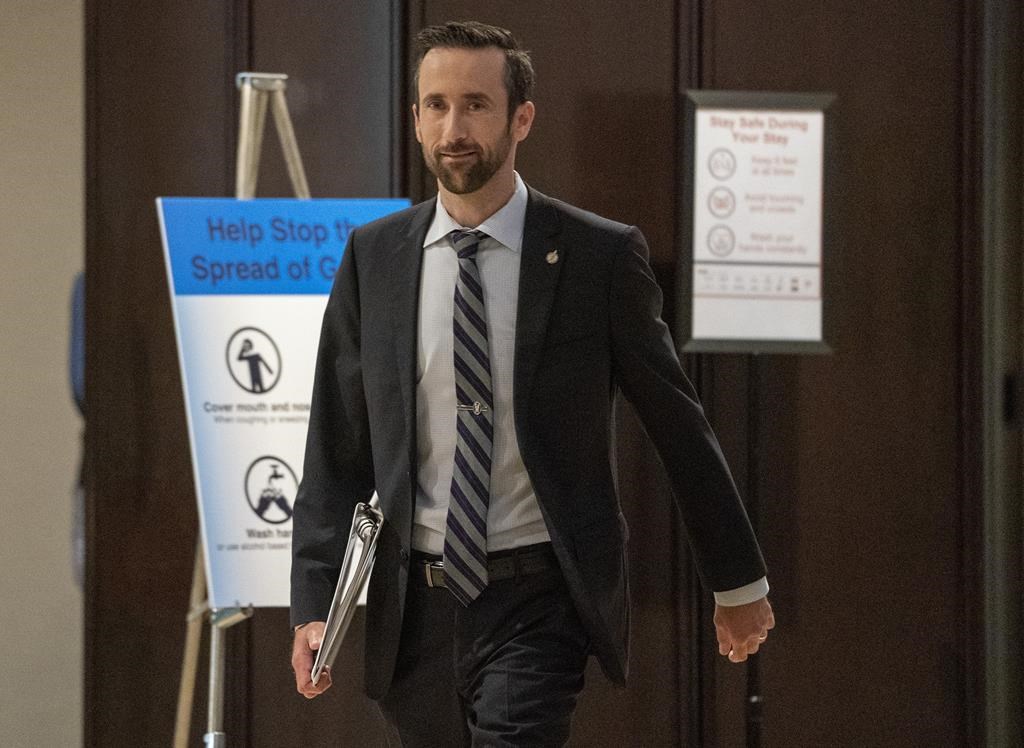
Controversial MP Derek Sloan was kicked out of the Conservative caucus Wednesday, a move party leader Erin O’Toole said was due to a “pattern of destructive behaviour” that had become a distraction.
O’Toole’s acknowledgment that Sloan’s dismissal was not solely over a donation he’d taken from a white nationalist came after hours of heated debate within caucus that saw MPs castigate both Sloan for his record and O’Toole for how he’d handled the issue.
Sloan said he will now sit as an Independent and will continue to fight for conservatives voices.
“No matter how ugly _ how undemocratic _ the events of the last two days have been, always remember that the Conservative Party of Canada is not the personal property of Erin O’Toole, nor is it the personal property of the cabal that surrounds him,” he wrote.
O’Toole had formally triggered the effort to boot Sloan after revelations Monday that Sloan accepted a donation last year from a known white nationalist, news that broke one day after O’Toole declared there’s no room in his party for far-right extremism or racism.
Sloan claimed he was not aware of the donation previously, and as soon as he learned of it, asked the party to return the money.
But Sloan’s extreme socially conservative views had been a thorn in the party’s side and there had been mounting pressure on O’Toole to kick him out.
During his 15 months as an MP, Sloan has faced accusations he’s racist, drawn condemnation for his views on LGBTQ rights and for his anti-abortion stance, all leading to periodic calls he be tossed from the party’s benches.
“I’ve worked well with many social conservatives in our party over the years. They are welcome in our party, but Derek Sloan’s behaviour is not,” wrote former Conservative cabinet minister John Baird on social media this week.
That O’Toole initially billed the decision to oust him as being based on the donation was a source of frustration for many MPs. Any one of them, in theory, could have accepted and overlooked a similar contribution as vetting the pedigree of each contributor would be impossible.
Several told O’Toole during the meeting he had to come clean about why Sloan was getting the boot, otherwise he was setting too high a bar for them all.
““The Conservative caucus voted to remove Derek Sloan not because of one specific event, but because of a pattern of destructive behaviour involving multiple incidents and disrespect towards the Conservative team for over a year,” O’Toole said in his statement after the meeting,
“These actions have been a consistent distraction from our efforts to grow the party and focus on the work we need to do. Events of the past week were simply the last straw and led to our caucus making the decision it did today.”
O’Toole won leadership of the party, however, partially on the strength of Sloan’s supporters, and he took pains Wednesday to try to assuage concerns the move was meant as a swipe at them.
“I did not vote to remove Derek Sloan from our caucus because he is a social conservative. We have members of Parliament of deep compassion and unmatched character, who like many Canadians, draw strength from their faith,” he said.
“The Conservative party is a big tent that is reflective of all Canadians.”
But the most recent knock against Sloan was his effort to mobilize supporters to participate in a Conservative policy convention in March.
The party is investigating whether his use of robocalls to get people to register for the convention runs afoul of telecommunications regulations. His use of the party’s membership list to encourage delegates to register also ruffled feathers and is under review and the party has said he’s been unco-operative in that process.
While socially conservative groups are traditionally quite active at Conservative conventions, their ranks swelled during the leadership race, given both Sloan’s and Leslyn Lewis’s campaigns explicitly targeted those constituencies.
With strong enough numbers, resolutions they want to advance have a better chance of passing, including one that would delete a policy pledging that a Conservative government will not regulate abortion.
That in turn would jeopardize O’Toole’s efforts to present the party as more centrist.
In his email Wednesday, Sloan urged his backers not to give up, a spirit echoed by the Campaign Life Coalition, which accused O’Toole of trying to deflate people’s enthusiasm.
“Don’t give O’Toole exactly what he wants,” the coalition’s Jack Fonseca wrote in the email.
“We are so close to winning at the convention that even if Derek gets expelled, we need to stay engaged in the convention to make the party more socially conservative in its policy declaration.”
